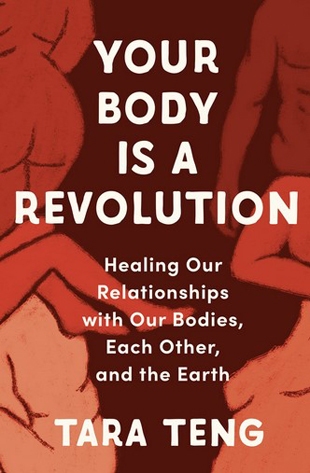Embodiment, justice, and sexuality are meeting points in the work of Tara Teng in this book. An excellent teacher, Teng helps people to live more fully in and into their bodies.
She begins by emphasizing the problem and danger of pursuing an ideal body instead of living more fully in, and understanding better, one’s real body. “The body shows me that being human is good,” she writes toward the end of chapter 1. She adds: “I invite you to taste what it feels like to live with unapologetic abandon of the expectations and perception of others.” Not many people do this or do it well. Teng explains that we and everything around us is unhealthy, physically and spiritually, as a result.
She guides the reader to discover the intuitive voice inside, in our bodies. She also seeks to reclaim pleasure as a given good for every human being. If you are uncomfortable with frank and sometimes anatomical talk about sex activity, sexual function, or sexual violence, steer clear of this book.
Those who are not yet conversant on the topics of gender transition and moving beyond the gender binary will find much that is helpful here. One of Teng’s premises is that, “Our gender expression is an embodiment of our unique human experience. It is more vast, more diverse, more open, and more expansive than a binary could ever hold.”
Readers should be prepared for terms that might be unfamiliar. Phrases such as “systemic disembodied” and “somatic practitioner” and “decolonize our minds” are used, but explained.
In Teng’s careful analysis, it becomes clear how and why our human bodies are such a mess, because our world is a mess. Her book is exceedingly smart but also full of reflecting questions. She offers a substantive “Invitation” at the conclusion of each chapter: These are practical and grounding, exercises the reader ought to undertake. See the following spiritual practice for a sample.
